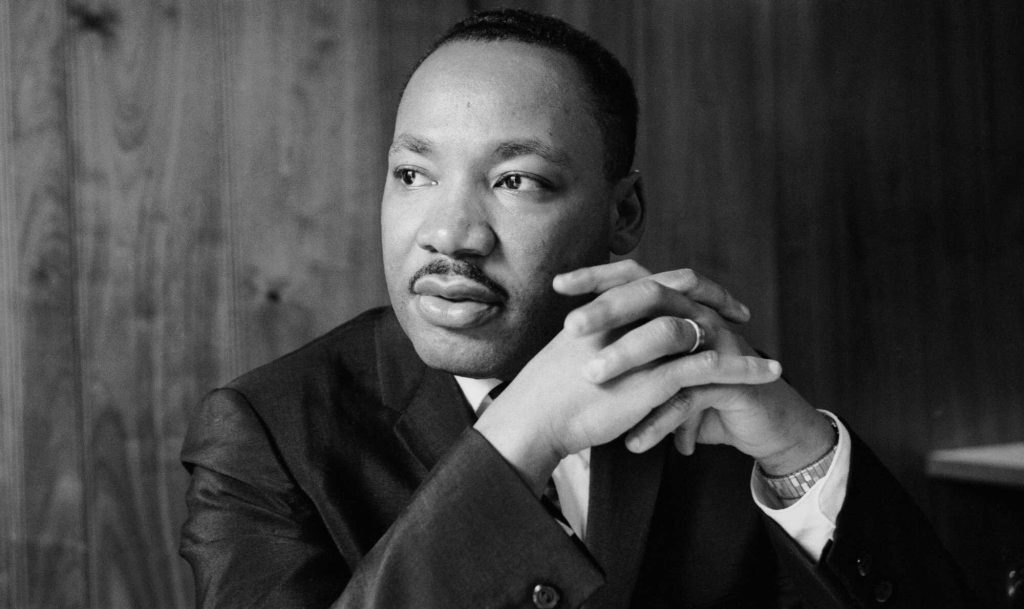
by Shoshana Bryen and Eric Rozenman
The nation will observe Rev. Martin Luther King, Jr. Day this January 15. A giant of the American civil rights movement, Dr. King’s legacy of advancement of racial equality and integration is embodied by the Civil Rights Act of 1964 and Voting Rights Act of 1965. Or it was, until the arrival of the diversity, equity, and inclusion (DEI) enforcers.
Imagine, if you will, Dr. King applying today at Harvard University’s divinity school …
Faculty Review Committee Chair: Dr. King, it says on your mandatory DEI statement that you led the famous march on Selma.
Dr. King: Yes, I did, along with colleagues from the Southern Christian Leadership Conference, rabbis, Catholic priests …
Committee Chair, interrupting: You didn’t mention imams, monks, sadhus, or Native American medicine men. Or medicine women. Not very diverse.
Dr. King, surprised: Sir, there were women, black and white. A few even carried banners. There could have been Muslims or Buddhists; I didn’t question anyone’s faith. We were all struggling to make the American promise of equal rights a reality …
First committee member: “Equal rights.” You use that phrase repeatedly in your DEI statement. You don’t see it as a mirage promoted by the white power structure to get a misled buy-in from oppressed minorities? You never refer to equity …
Dr. King, staring: Madam, our fight—long and dangerous—was to compel this imperfect but perfecting land to live up to its founding promise that “all men are created equal and endowed by their Creator with certain inalienable rights.” We fought to redeem the Founders’ promissory note, as Frederick Douglass described it …
First committee member, interrupting: Frederick who? Never mind. Dr. King, The Declaration of Independence is the equivalent of a used car salesman’s—salesperson’s—small print. Jefferson wrote it, and he was a slaveholder, like the rest of them.
Dr. King, annoyed: Thomas Jefferson wrote it, with Benjamin Franklin and John Adams’ editing. Neither Franklin nor Adams owned slaves or came from states that permitted it. The Declaration embodied the irreconcilable tension within “a nation half free, half slave,” as Lincoln would later put it, which would result in the Civil War, emancipation, the 14th Amendment—citizenship rights and equal protection—and the 15th Amendment—voting rights.
Second committee member: Lincoln? Another privileged white man! We’re not here for a history lesson, Dr. King. What we must know is how your obsession with equality can yield equitable outcomes for underserved minorities.
Dr. King: By equity you mean proportionate. Hmm… African Americans comprise almost 13 percent of the U.S. population, but only 7.3 percent of Harvard faculty. I checked. And I don’t care—so long as a generation from now we’re more than that and have earned those positions. Your “equity” undermines the American ideal of meritocracy—that all individuals, regardless of race, religion or sex should be free to reach as high as their talents can carry them, and by which society will benefit.
Third committee member, scandalized: Dr. King, you said “sex,” not gender! I move we adjourn.
Chair: Now, now, Dr. Wilcox-Mustafa-Goldblatt. I am sure we all have more questions for Dr. King.
Dr. Wilcox-Mustafa-Goldblatt: Humph! Dr. King, what about inclusion of the LGBTQIA+ community?
Dr. King: I include people one-to-one, as individuals, not stereotypes for their “communities.” Bayard Rustin was practically my right-hand man. I never asked him about his sexuality, and unlike J. Edgar Hoover, he never investigated mine.
Chair: The discredited “don’t ask, don’t tell” approach, eh? Dr. King, since you’ve returned to the concept of so-called individual equality, I must ask about your “I have a dream” speech. You claimed, and I quote, “I have a dream that my four little children will one day live in a nation where they will not be judged by the color of their skin but by the content of their character.”
Dr. King: Ah, the 1963 March on Washington for Jobs and Freedom. It really galvanized so much progress, didn’t it? Though we’ve made great advances, I still anticipate the complete fulfillment of that dream.
Chair: You seem to rule out racial and identity groups’ segregated dormitories, dining halls, graduation ceremonies—safe spaces of all types. And you refer to “character,” as if it were something individuals developed rather than society imposed on their communities.
Fourth committee member: In that speech did you not also say you dreamed “one day on the red hills of Georgia the sons of former slaves and the sons of former slave owners will be able to sit down together at the table of brotherhood.”
Dr King: I labored over that line…
Fourth committee member: Without reparations?
Chair: Dr. King, didn’t you once tell a group of black students that “when people criticize ‘Zionists,’ they mean Jews. You’re talking antisemitism.”
Dr. King: I did. ‘Zionist’ Israel is a wonderful country, as I said.
Committee members gasp.
Chair gavels for order: Good-day, Dr. King. Next applicant, please.
Shoshana Bryen is senior director of the Jewish Policy Center. Eric Rozenman is the center’s communications consultant. Any opinions expressed above are solely their own.
- Like
- Digg
- Tumblr
- VKontakte
- Buffer
- Love This
- Odnoklassniki
- Meneame
- Blogger
- Amazon
- Yahoo Mail
- Gmail
- AOL
- Newsvine
- HackerNews
- Evernote
- MySpace
- Mail.ru
- Viadeo
- Line
- Comments
- SMS
- Viber
- Telegram
- Subscribe
- Facebook Messenger
- Kakao
- LiveJournal
- Yammer
- Edgar
- Fintel
- Mix
- Instapaper
- Copy Link







